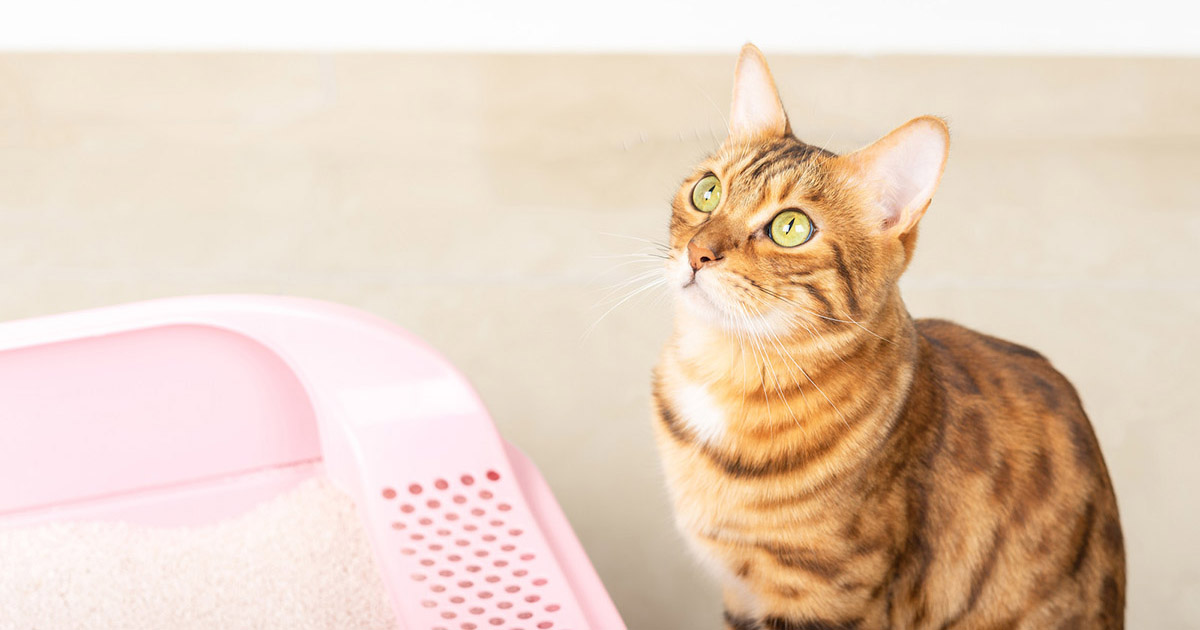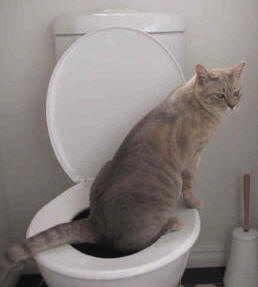Reasons Flushing Cat Poop Down Your Toilet Isn't a Good Idea - Advice for Proper Handling
Reasons Flushing Cat Poop Down Your Toilet Isn't a Good Idea - Advice for Proper Handling
Blog Article
Everyone may have his or her own opinion with regards to Don’t flush cat feces down the toilet.

Introduction
As cat owners, it's essential to bear in mind just how we throw away our feline pals' waste. While it might seem practical to purge cat poop down the commode, this practice can have harmful repercussions for both the environment and human health.
Ecological Impact
Flushing cat poop presents dangerous pathogens and parasites into the water supply, presenting a considerable danger to marine ecological communities. These impurities can negatively influence marine life and compromise water top quality.
Health and wellness Risks
In addition to environmental issues, purging pet cat waste can also posture wellness dangers to human beings. Feline feces might consist of Toxoplasma gondii, a parasite that can trigger toxoplasmosis-- a potentially extreme ailment, particularly for expecting females and people with damaged body immune systems.
Alternatives to Flushing
The good news is, there are more secure and more responsible ways to get rid of pet cat poop. Consider the following options:
1. Scoop and Dispose in Trash
One of the most common method of dealing with pet cat poop is to scoop it into an eco-friendly bag and throw it in the trash. Make sure to use a devoted litter inside story and take care of the waste quickly.
2. Usage Biodegradable Litter
Opt for naturally degradable feline litter made from products such as corn or wheat. These litters are eco-friendly and can be safely gotten rid of in the garbage.
3. Bury in the Yard
If you have a lawn, consider hiding pet cat waste in a designated area away from vegetable gardens and water resources. Make certain to dig deep adequate to prevent contamination of groundwater.
4. Install a Pet Waste Disposal System
Buy a pet waste disposal system specifically designed for cat waste. These systems use enzymes to break down the waste, reducing odor and environmental effect.
Final thought
Accountable family pet possession prolongs beyond providing food and sanctuary-- it additionally involves proper waste administration. By refraining from flushing cat poop down the toilet and choosing alternate disposal approaches, we can minimize our environmental footprint and secure human wellness.
Why You Should Never Flush Cat Poop Down the Toilet
A rose by any other name might smell as sweet, but not all poop is created equal. Toilets, and our sewage systems, are designed for human excrement, not animal waste. It might seem like it couldn’t hurt to toss cat feces into the loo, but it’s not a good idea to flush cat poop in the toilet.
First and foremost, assuming your cat uses a litter box, any waste is going to have litter on it. And even the smallest amount of litter can wreak havoc on plumbing.
Over time, small amounts build up, filling up your septic system. Most litter sold today is clumping; it is made from a type of clay that hardens when it gets wet. Ever tried to scrape old clumps from the bottom of a litter box? You know just how cement-hard it can get!
Now imagine just a small clump of that stuck in your pipes. A simple de-clogger like Drano isn’t going to cut it. And that means it’s going to cost you big time to fix it.
Parasitic Contamination
Believe it or not, your healthy kitty may be harboring a nasty parasite. Only cats excrete Toxoplasma in their feces. Yet it rarely causes serious health issues in the cats that are infected. Most people will be fine too if infected. Only pregnant women and people with compromised immune systems are at risk. (If you’ve ever heard how women who are expecting are excused from litter cleaning duty, Toxoplasma is why.)
But other animals may have a problem if infected with the parasite. And human water treatment systems aren’t designed to handle it. As a result, the systems don’t remove the parasite before discharging wastewater into local waterways. Fish, shellfish, and other marine life — otters in particular — are susceptible to toxoplasma. If exposed, most will end up with brain damage and many will die.
Depending on the species of fish, they may end up on someone’s fish hook and, ultimately on someone’s dinner plate. If that someone has a chronic illness, they’re at risk.
Skip the Toilet Training
We know there are folks out there who like to toilet train their cats. And we give them props, it takes a lot of work. But thanks to the toxoplasma, it’s not a good idea.

Do you like more info about How to Dispose of Cat Poop and Litter Without Plastic Bags? Leave feedback further down. We'd be pleased to hear your feelings about this blog. Hoping that you come back again in the future. Sharing is caring. Helping others is fun. Thank you so much for taking the time to read it.
Show Details Report this page